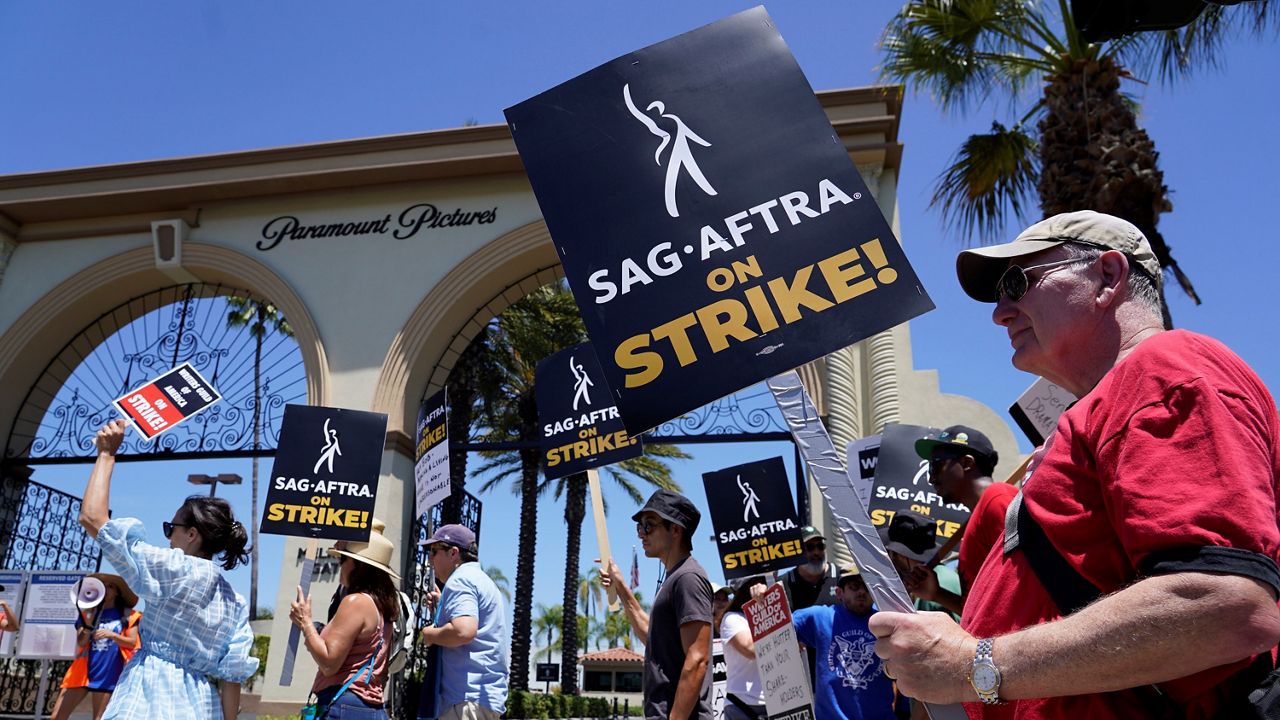As the Hollywood strikes continue, the Screen Actors Guild is putting an end to side deals that had allowed some independent projects to continue.
On Monday, SAG-AFTRA said it is prohibiting so-called interim agreements involving U.S. projects covered by the Writers Guild of America.
Since May 2, when the 11,500 members of the WGA went on strike, it has not allowed any interim agreements to productions that did not involve the Alliance of Motion Picture and Television Producers. The WGA has been striking against the AMPTP for higher residual payments, mandatory staffing requirements and protections against the use of artificial intelligence.
Since July 14, when SAG-AFTRA’s 160,000 also began striking against the AMPTP, it has allowed interim agreements for non-AMPTP projects that met some of SAG’s strike demands for revenue sharing of streaming projects and higher minimum wages.
SAG had granted more than 200 productions such interim agreements, including the A24 films “Death of a Unicorn,” starring Jenna Ortega and Paul Rudd, and “Mother Mary,” featuring Anne Hathaway and Michaela Coel.
“We have been advised by the WGA that this modification will assist them in executing their strike strategy, and we believe it does not undermine the utility and effectiveness of ours,” SAG-AFTRA said in a statement on its strike web site. “It is a win-win change.”
SAG-AFTRA said it will only grant interim agreements for non-WGA projects to ensure that only true independent productions are included.



